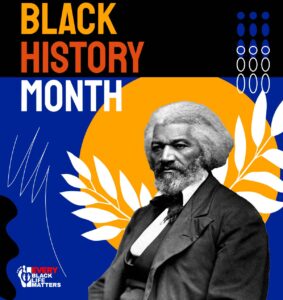Frederick Douglass: A Lion of Abolition
Written by Contributing Author, Charles Wekesa

By Charles Wekesa
This boldness not only enabled him to read and write, which was forbidden for slaves during that time, but also empowered him to become a powerful tool against slavery. The will power it took for Douglass to liberate himself by escaping to freedom in 1838 to the North, was later harnessed to ignite a fervent abolitionist movement that swept across the nation.
Frederick Douglass: A Lion of Abolition
By Charles Wekesa
Feb 11, 2024
Born into the shackles of slavery in February 1818, Frederick Douglass emerged from adversity to become a powerful beacon of determination, transcending oppressive beginnings to significantly shape the history of America. An eloquent testament emanates from his transformative journey in pursuit of parity and liberty. In this brief study, we delve into the exceptional life of Douglass, who from slavery became an integral element in influencing the trajectory of African Americans in the United States. His story not only embodies individual triumph but also serves as a powerful testimony to inspire change and to make unforgettable mark on the conscious of all who learn about his life’s journey.
From Enslaved to Empowered: Douglass’s Triumph
On Maryland’s Eastern shore, the cruel realities of slavery shaped the early years for Douglass.. Nevertheless, his unwavering enthusiasm and insatiable thirst for knowledge emboldened him to defy his tyrannical master.
This boldness not only enabled him to read and write, which was forbidden for slaves during that time, but also empowered him to become a powerful tool against slavery. The will power it took for Douglass to liberate himself by escaping to freedom in 1838 to the North, was later harnessed to ignite a fervent abolitionist movement that swept across the nation.

Ink to Write and a Voice to Ignite
As an influential orator and prolific writer, Douglass’s command of language was evident in his speeches, essays, and autobiographical works. “Narrative of Frederick Douglass, an American Slave” (1845) was quite influential, stirring the nation’s conscience and fueling the abolitionist movement by vividly depicting the horrors of slavery. In the speech “What to the Slave Is the Fourth of July?” (1852), many believe his oratory brilliance reached its zenith, delivering a poignant critique of a nation celebrating freedom while others in the nation languished in chains.
Whispers of Hope, Roars for Justice
Douglass’s advocacy encompassed a scope that extended beyond the abolition of slavery. He ardently supported the rights of women and participated in the significant Seneca Falls Convention of 1848, where he asserted that he would not accept voting rights as a Black man if women were denied the same rights.
Throughout the civil war, Douglass tirelessly lobbied President Lincoln to permit African Americans to enlist in the Union Army. He asserted that their participation was crucial and not just for the war effort but also as a declaration to their right to citizenship. His dedication persisted through the Reconstruction era, advocating for civil right’s legislation and protection against racial violence.
Timeless Inspiration: A Legacy Shaping Tomorrow
The enduring impact of Frederick Douglass attests to his unwavering and resilience in pursuit for justice. His life’s work laid the foundation for future civil rights movements, offering a powerful strategy for building resilience and engaging in effective advocacy. Douglass demanded full equality for all Americans regardless of gender or race, and left an indelible mark on history, continuing to inspire generations of activists and leaders.
Douglass’s writing and speeches continue to hold sway across the halls of academia, government buildings and can be found as the heartbeat of rallies and marches around America. Even now his words are poignant echoes pointing towards the contemporary struggles for equality. Thanks to the internet Douglass is even captivating audiences around the world with his eloquence.. Well aware of America’s imperfections, he believed in an inclusive society, a vision for a more equitable country and a belief in its promise that serves as a guiding light for those striving to build upon his legacy.
Conclusion
Frederick Douglass had a profound and far-reaching impact on the Black History in America. He contributed as a civil rights activist, an abolitionist, and an orator who not only shaped the historical narrative but also continued to influence the ongoing fight for justice and equality. Douglass acted as a voice for the voiceless and established himself as a towering figure in American history through his words and actions. While we reflect on his life and legacy, it is prudent to remember the enduring power of Douglass, who ignited transformation. In this article I strive to paint a comprehensive picture of a man whose impact on American history cannot be overstated .
Also take a moment to review Kevin’s Black History Month video statement about Frederick Douglass: HERE




